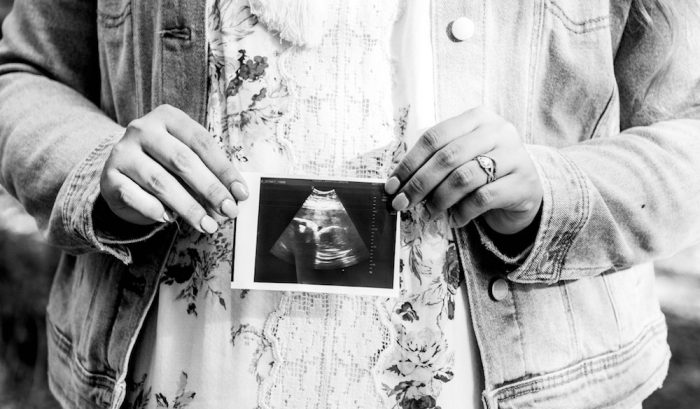It was Sunday afternoon, and I was on my way back home from a pregnancy preparation yoga workshop.
I felt strange cramps, like those I’d get before my menstruation.
It shook me deep inside, like when you know you’re about to receive bad news. But I dismissed it immediately with the thought that I probably shouldn’t have done that handstand in the workshop. It’ll be okay after a rest.
The next morning, when I saw a pink bloodstain on my pad, I was very calm. This is normal, I thought. But from that moment on, it was a matter of four hours of escalating cramps and bleeding, a visit to the doctor, receiving the news the baby had no pulse, and back home to wait for the miscarriage to happen. I was just over the three-month mark.
What followed was a long and arduous trek through the dark tunnel of life. Not knowing what to expect. Not knowing how it actually happens that the little growing being inside me is disintegrating. Not knowing how long the pain is going to last.
In the days and weeks after the miscarriage, I was digesting my own physical and emotional pain, as well as the responses of the people around me to this unspoken event.
Death is not (a spoken) part of life.
When someone dies, there’s a great embarrassment. We don’t know what to say. Everything that comes to mind seems irrelevant, and we’re afraid to say the wrong thing. The resolution for most people is to stay mute or to be minimal in contact, lest we do something that will embarrass us and perhaps hurt the person we only want to support.
We’re not to blame, really. We live in a time when doing is glorified and knowing is admired, while simply being present is marginalised, even ridiculed. Our society relates more easily to seen things than to the invisible world of feelings and energy.
When it comes to a miscarriage, where there isn’t even a baby yet that we can see and touch, we really don’t know how to take it in.
Most of us don’t know that a miscarriage is so common, that most likely someone as close as a friend, a colleague, or a family member has experienced it. So when we hear about it, it’s almost as if we were hearing about an encounter between a neighbour and an alien. We’re at a loss for words.
It’s not customary to share the beautiful news of pregnancy until the three-month mark has safely been passed. Likewise, we don’t share that this beautiful pregnancy has ended in a miscarriage. It becomes an isolated traumatic experience others, understandably, find it hard to understand.
Teach those you love how to love you.
Considering the complexity of the context in which a miscarriage happens, I find my most favourite saying to be even more potent: We need to educate those we love how to love us. We need to help them learn what it is we need and want.
I was blessed to have amazing support around me. Mostly. Because I shared the news as well as the process of my miscarriage publicly, I received dozens of messages from women sharing with me how they’re still trying to cope with the pain of the loss and the lack of support.
We are all the same. We all experience sadness, even if the circumstances are different. But this fact might remind us that the capacity to be there for another, even in strange and rattling situations like a miscarriage, is inherent within us.
The following is a personal account of my own experience as well as of those who deposited their stories with me:
1. Be present.
You might not have something that sounds sophisticated to say. You may not be knowledgeable about the process and there’s nothing productive that can be done. Yet your presence, just being there with the woman, will most probably be more than enough.
To listen, to sit with, to cry with, to offer our loving attention, are all examples of being present. Believe that your presence is more than enough.
Here are some of the messages I received: “I am with you,” “I don’t know what to say; I am so sad,” “It’s difficult to find the right words, but I’m thinking of you and wish you all the space you need.”
2. Be proactive.
A miscarriage is demanding—physically and emotionally. A woman most likely won’t have the energy to pick up the phone and ask for support because emotionally, she’s lost.
One friend told me, “I’m here if you need me.” I’m grateful to know that. But I found it difficult to initiate any communication by myself.
Most of us are afraid of being rejected. When we’re aware of that, we can simply note to ourselves that our calls or texts might not be answered right away, and it’s not a personal rejection.
3. Get curious.
Asking questions is a great tool for coming closer to another person—“What would help you the most right now?” “How can I support you right now?” “Is there anything I can do/say to support you?”
We really can’t, and don’t need to, have all the answers. When in doubt, just ask.
4. Learn the stages of grief.
“Grief should be grieved rather than immediately treated as a problem to be solved and done away with.” ~ Maria Popova
I wish we all had learnt in school the five stages of grief: 1. Denial/Isolation, 2. Anger, 3. Negotiation (with the reality), 4. Sadness, 5. Acceptance.
Anger is another human feeling that is condemned. Especially for women. Yet anger has a tremendous healing power. When we experience anger, we can feel that something is ignited or inflamed. That fire element of anger helps us transform and move into a wise action.
If the woman is angry, instead of getting scared that something’s wrong, know that it’s good news. She’s processing and moving through the stages of healing.
5. Talk, if you wish.
Miscarriage is enveloped by a lot of shame. As I blamed myself for taking the handstand in the yoga workshop and causing the cramps, it’s all too easy to blame ourselves for something that has gone wrong and to feel ashamed about it.
We feel shame mostly for the things we hide from the world. This is why sharing is an important catalyst of healing shame.
You can ask a woman if she wants to share her experience with you. If you wish, you can ask if she wants to hear your story, if you’ve had an experience of miscarriage.
Close to a hundred stories have been shared with me in the past eight months since my miscarriage. Friends, family, people on social media, even my own doctor told me about his young sister who had eight miscarriages. Each story made me feel less alone.
Contrary to what it may seem, loss is a shared experience.
~
“We need each other as we need the earth we share.” ~ Maya Angelou









Read 0 comments and reply